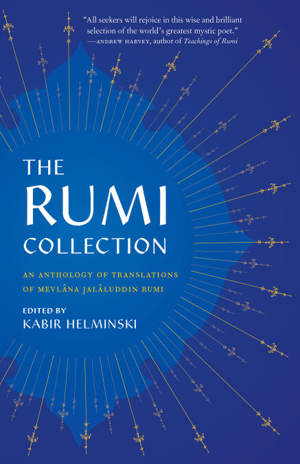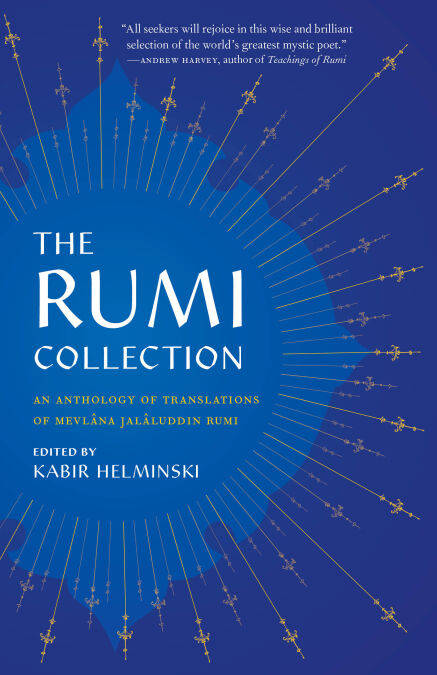
Bedankt voor het vertrouwen het afgelopen jaar! Om jou te bedanken bieden we GRATIS verzending (in België) aan op alles gedurende de hele maand januari.
- Afhalen na 1 uur in een winkel met voorraad
- In januari gratis thuislevering in België
- Ruim aanbod met 7 miljoen producten
Bedankt voor het vertrouwen het afgelopen jaar! Om jou te bedanken bieden we GRATIS verzending (in België) aan op alles gedurende de hele maand januari.
- Afhalen na 1 uur in een winkel met voorraad
- In januari gratis thuislevering in België
- Ruim aanbod met 7 miljoen producten
Zoeken
The Rumi Collection E-BOOK
An Anthology of Translations of Mevlana Jalaluddin Rumi
Mevlana Jalaluddin Rumi
E-book | Engels
€ 19,66
+ 19 punten
Omschrijving
A rich introduction to the work of Rumi by the foremost scholar on the great mystical poet, featuring leading literary translations of his verse by Coleman Barks, Robert Bly, Andrew Harvey, Kabir Helminski, Camille Helminski, Daniel Liebert, and Peter Lamborn Wilson.
Rumi's poems are beloved for their touching perceptions of humanity and the Divine. To display the major themes of Rumi's work, each of the eighteen chapters in this anthology are arranged topically, such as "The Inner Work," "The Ego Animal," "Passion for God," "Praise," and "Purity," uncovering a deep and timeless understanding of Sufism and mysticism. Also included is a biography of Rumi by Andrew Harvey and an introductory essay by Kabir Helminski on the art of translating Rumi's work into English.
"The Spiritual Surgeon"
Can the water of a polluted stream
Wash away the dirt?
Can human knowledge sweep away
The ignorance of the sensual self?
How does a sword fashion its own hilt?
Go, entrust your wound to a surgeon,
For flies will gather around the wound
Until it can’t be seen.
These are your selfish thoughts
And all you dream of owning.
The wound is your own dark hole.
Mathnawi I, 3221–3224
(translated by Kabir Helminski and Camille Helminski)
Rumi's poems are beloved for their touching perceptions of humanity and the Divine. To display the major themes of Rumi's work, each of the eighteen chapters in this anthology are arranged topically, such as "The Inner Work," "The Ego Animal," "Passion for God," "Praise," and "Purity," uncovering a deep and timeless understanding of Sufism and mysticism. Also included is a biography of Rumi by Andrew Harvey and an introductory essay by Kabir Helminski on the art of translating Rumi's work into English.
"The Spiritual Surgeon"
Can the water of a polluted stream
Wash away the dirt?
Can human knowledge sweep away
The ignorance of the sensual self?
How does a sword fashion its own hilt?
Go, entrust your wound to a surgeon,
For flies will gather around the wound
Until it can’t be seen.
These are your selfish thoughts
And all you dream of owning.
The wound is your own dark hole.
Mathnawi I, 3221–3224
(translated by Kabir Helminski and Camille Helminski)
Specificaties
Betrokkenen
- Auteur(s):
- Uitgeverij:
Inhoud
- Aantal bladzijden:
- 272
- Taal:
- Engels
Eigenschappen
- Productcode (EAN):
- 9780834845091
- Verschijningsdatum:
- 17/07/2023
- Uitvoering:
- E-book
- Beveiligd met:
- Adobe DRM
- Formaat:
- ePub

Alleen bij Standaard Boekhandel
+ 19 punten op je klantenkaart van Standaard Boekhandel
Beoordelingen
We publiceren alleen reviews die voldoen aan de voorwaarden voor reviews. Bekijk onze voorwaarden voor reviews.









